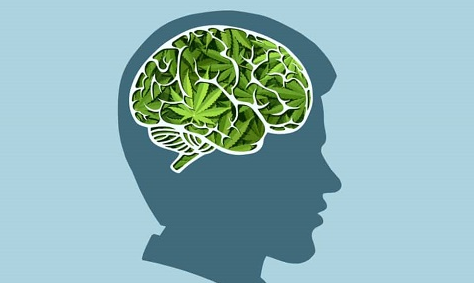Canadian Charity Warns of Rising Psychosis Diagnoses Nationwide
According to the Canadian Institute for Medical Statistics, the number of people diagnosed with a psychological disorder known as “marijuana-induced psychosis” has significantly increased in Canada over the past five years. Data collected during this period (excluding Ontario and Quebec, which did not participate in the study) shows that the total number of such diagnoses has roughly doubled. Specifically, experts note that in 2012, 373 Canadians were diagnosed with this condition, while by the end of 2017, the number had risen to 723. Medical professionals from the organization predict that the number of people with this diagnosis will continue to grow, especially following the full legalization of recreational marijuana last year.
The Link Between Marijuana Use and Psychological Disorders
For the past 70 years, medical professionals have debated whether frequent marijuana use can negatively impact mental health. Most available private studies now agree that daily marijuana use over several years, or early exposure during adolescence, can lead to mental health issues and symptoms of schizophrenia in some individuals. Other research suggests that such symptoms only appear in people with a genetic predisposition to these disorders. Additionally, some studies indicate that marijuana may have therapeutic effects on nervous system disorders, including the ability to suppress certain symptoms of schizophrenia.
These varying effects are likely due to the fact that medicine still does not fully understand the biological mechanisms behind the development of mental health symptoms or how they relate to the body’s endocannabinoid system.
Nevertheless, Chris Summerville, head of the Canadian Schizophrenia Society, publicly supported the report’s findings, noting that his organization has long encountered individuals whose illness manifested after frequent marijuana use. He also observed an increase in young people experiencing schizophrenia symptoms due to marijuana use in recent years. “I believe that now, after the formal legalization of marijuana, we will soon face a wave of new diagnoses,” he stated in an interview.
The Need for Further Research
It’s important to note that all studies on the link between marijuana use and the risk of psychosis have been conducted by private organizations, not by government universities or laboratories. In fact, no country has conducted comprehensive clinical trials on the long- and short-term effects of marijuana on mental health, largely due to the global criminalization of the plant. However, Canada became an exception after federal legalization in October. Canadian medical professionals, now able to conduct larger studies and surveys, are increasingly inclined to believe that frequent marijuana use can have certain negative consequences for mental health and brain function.
Still, it’s worth noting that doctors do not yet know which biological mechanisms cause symptoms of schizophrenia and other mental disorders. As a result, they cannot explain why one person may use marijuana without noticeable health effects, while another may experience serious consequences even after a single use.
Some experts believe the observed increase in “marijuana psychosis” diagnoses is actually due to people who previously suffered from the disorder now being more open about it, thanks to the more liberal attitude of the Canadian public and government toward marijuana legalization. Others question what exactly is meant by “marijuana psychosis” in the report, noting that doctors usually associate marijuana use with neurotic disorders, which range from bipolar disorder to various forms of schizophrenia. Meanwhile, charities and the Schizophrenia Society have classified many people as experiencing psychosis based on symptoms like passivity and loss of motivation, which may be linked to marijuana’s intoxicating effects rather than early negative symptoms of schizophrenia.
Despite the ambiguity of the terms used, warnings about the potential risk of psychological disorders from chronic marijuana use should not be dismissed. It is important for such reports to carefully document and describe observed patterns for further study, rather than simply blaming the rise in serious illnesses on marijuana and its legalization. Remember, scientific opinion on marijuana’s impact on mental health and its therapeutic effects for certain disorders is still not fully formed, mainly due to a lack of precise experimental data.
The only point on which medical professionals agree is that young people (those under 25) should avoid using marijuana to prevent cannabinoids from affecting brain development and growth. Many studies agree that even small amounts of marijuana during adolescence can significantly alter the structure of certain brain regions. However, scientists still disagree on how these changes affect personality and behavior.



